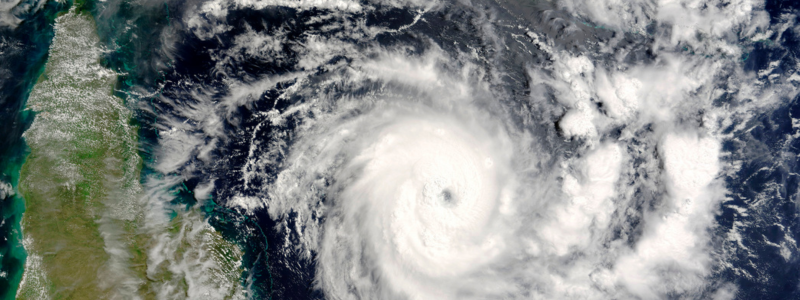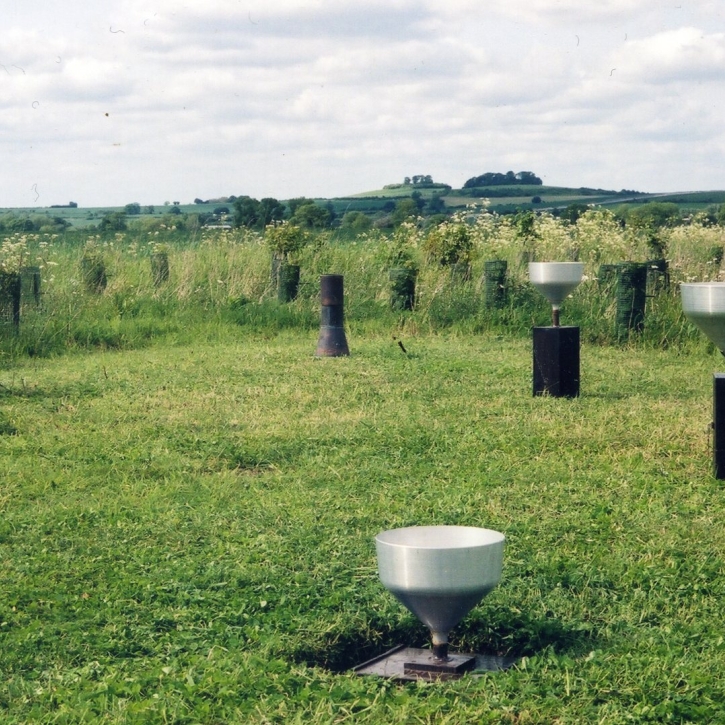

Future Changes in the Weather Frequency of Extreme Weather Across Europe
LOCATION
European-scale convection-permitting climate models and ensemble projections over the UK (UKCP Local) have been exploited to examine changes to extreme weather (rainfall, wind, hail, lightning) and their compounding impacts with global warming. This talk presented the findings in terms of changes to these types of extreme weather and possible compounding extreme weather events. These analyses suggest that not only warming, but dynamical circulation changes, are important in the manifestation of change to some types of extreme weather, with observed changes to extreme weather showing similar signals to climate projections. We use our projections to provide the first analyses of impacts on infrastructure systems using a new consequence forecasting framework, and show the implications for adaptation.
Biog: Science and on the DESNZ Science Expert Group. She is also a member of the Met Office Hadley Centre Climate Programme Science Review Group. Locally, she co-chairs the Newcastle Net Zero Task Force.
Speaker
Hayley Fowler is Professor of Climate Change Impacts in the School of Engineering at Newcastle University. Her research focuses on improved physical understanding of changing precipitation extremes and providing better projections for climate adaptation. She has pioneered new downscaling techniques to bridge the gap between climate modellers and users of climate scenarios (e.g. UKCP09 Weather Generator). She is a Fellow of the American Geophysical Union (2018) and a Royal Society Wolfson Research Fellow (2014-19) for her work on understanding climate change impacts on hydrological systems, extreme rainfall and flooding, following a Philip Leverhulme Prize (2011) and NERC Postdoctoral Fellowship (2006-10). She led the GEWEX Hydroclimatology Panel sub-daily precipitation cross-cut and is Chief Editor of Frontiers in Interdisciplinary Climate Studies. She was a Contributing Author to Chapter 8: Water Cycle and Chapter 11: Extremes for the IPCC 6th Assessment Report WGI and Chapter 1 for the UK 3rd Climate Change Risk Assessment. She is British Hydrological Society President. She is on the Environment Agency Expert panel for Boosting Action in Surface Water: Plausible Extremes and a member of the Governance board for the Flood Hydrology Roadmap. She advises government through her roles on the Strategic Advisory Board for RESAS
Registration
REGISTRATION IS NOW CLOSED
 The Royal Meteorological Society has a number of local centres across the UK, where meetings are held throughout the year. The Scotland Local Centre are currently hosting monthly meetings which can be attended in person or virtually. For further information on the local centre, upcoming events or to be added to the mailing list, please contact scotland@rmets.org.
The Royal Meteorological Society has a number of local centres across the UK, where meetings are held throughout the year. The Scotland Local Centre are currently hosting monthly meetings which can be attended in person or virtually. For further information on the local centre, upcoming events or to be added to the mailing list, please contact scotland@rmets.org.
European-scale convection-permitting climate models and ensemble projections over the UK (UKCP Local) have been exploited to examine changes to extreme weather (rainfall, wind, hail, lightning) and their compounding impacts with global warming. This talk presented the findings in terms of changes to these types of extreme weather and possible compounding extreme weather events. These analyses suggest that not only warming, but dynamical circulation changes, are important in the manifestation of change to some types of extreme weather, with observed changes to extreme weather showing similar signals to climate projections. We use our projections to provide the first analyses of impacts on infrastructure systems using a new consequence forecasting framework, and show the implications for adaptation.
Biog: Science and on the DESNZ Science Expert Group. She is also a member of the Met Office Hadley Centre Climate Programme Science Review Group. Locally, she co-chairs the Newcastle Net Zero Task Force.
Speaker
Hayley Fowler is Professor of Climate Change Impacts in the School of Engineering at Newcastle University. Her research focuses on improved physical understanding of changing precipitation extremes and providing better projections for climate adaptation. She has pioneered new downscaling techniques to bridge the gap between climate modellers and users of climate scenarios (e.g. UKCP09 Weather Generator). She is a Fellow of the American Geophysical Union (2018) and a Royal Society Wolfson Research Fellow (2014-19) for her work on understanding climate change impacts on hydrological systems, extreme rainfall and flooding, following a Philip Leverhulme Prize (2011) and NERC Postdoctoral Fellowship (2006-10). She led the GEWEX Hydroclimatology Panel sub-daily precipitation cross-cut and is Chief Editor of Frontiers in Interdisciplinary Climate Studies. She was a Contributing Author to Chapter 8: Water Cycle and Chapter 11: Extremes for the IPCC 6th Assessment Report WGI and Chapter 1 for the UK 3rd Climate Change Risk Assessment. She is British Hydrological Society President. She is on the Environment Agency Expert panel for Boosting Action in Surface Water: Plausible Extremes and a member of the Governance board for the Flood Hydrology Roadmap. She advises government through her roles on the Strategic Advisory Board for RESAS
Registration
REGISTRATION IS NOW CLOSED
 The Royal Meteorological Society has a number of local centres across the UK, where meetings are held throughout the year. The Scotland Local Centre are currently hosting monthly meetings which can be attended in person or virtually. For further information on the local centre, upcoming events or to be added to the mailing list, please contact scotland@rmets.org.
The Royal Meteorological Society has a number of local centres across the UK, where meetings are held throughout the year. The Scotland Local Centre are currently hosting monthly meetings which can be attended in person or virtually. For further information on the local centre, upcoming events or to be added to the mailing list, please contact scotland@rmets.org.





